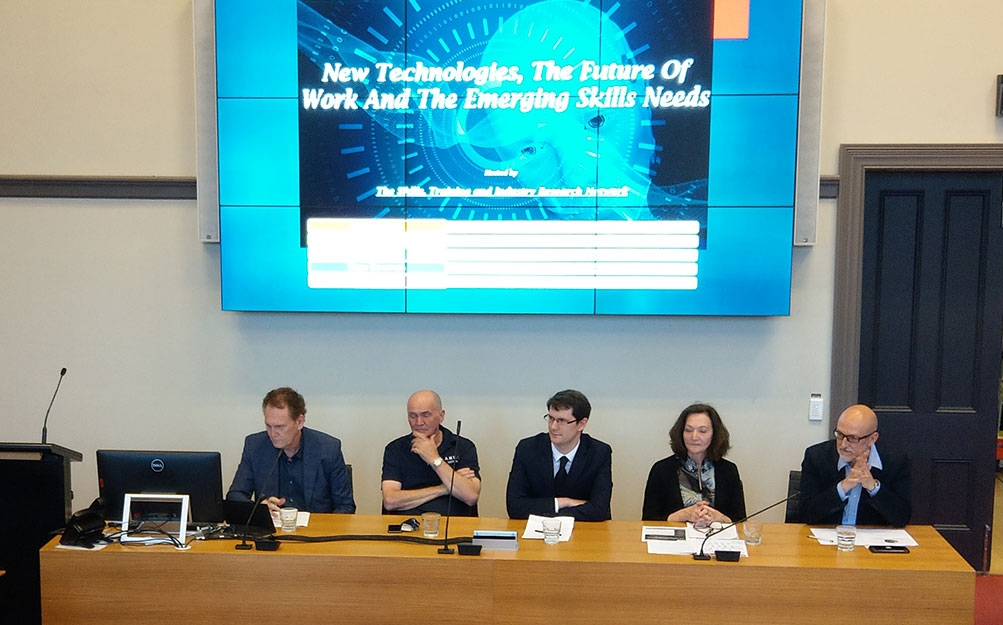

The Skills, Training and Industry Research Network (STIRN) is a multidisciplinary group of researchers, dedicated to better understanding the current and future direction of work, employment and changing industry skills demand.
It is co-led by Associate Professor Victor Gekara and Associate Professor Darryn Snell, both of whom have extensive research experience in the areas of industrial transformations under new technology and the implications for skills needs and workforce development. With the current rate and scale of change in workplace technologies, following advancements in Artificial Intelligence, Advanced Digitalisation and Smart Robotics, large scale industrial and occupational transformation is underway. STIRN’s research examines these developments and the potential implications for work and employment in order to inform the development of effective policies and strategies for socio-economic resilience.



RMIT’s Skills, Training and Industry Research Network inaugural seminar explored the implications of new technologies on the future of work in particular the changing nature and texture of work, employment displacement and transition and the changing workforce skills requirements.
STIRN, headed up by Associate Professor Victor Gekara and Associate Professor Darryn Snell, is dedicated to better understanding the current and future direction of work, employment and changing industry skills demand.
The panel members included Liam Harrison (Senior Industry Analyst, IBISWorld), Stephen Edwards (Procurement Management, ME Bank), Steve Dodd (Australian Manufacturing Workers' Union Organiser), Kaye Bowman, (Senior Policy Officer, Department of Education and Training, Victoria), and Terry Kennedy (Employment Facilitator, West and North West Melbourne). They presented and discussed different viewpoints on the digitalisation of the economy.
This seminar, supported by RMIT's Global Business Innovation Enabling Impact Platform, was very well attended, with over 50 participants and generated great discussions around preparing Australia for a digital economy.


Acknowledgement of Country
RMIT University acknowledges the people of the Woi wurrung and Boon wurrung language groups of the eastern Kulin Nation on whose unceded lands we conduct the business of the University. RMIT University respectfully acknowledges their Ancestors and Elders, past and present. RMIT also acknowledges the Traditional Custodians and their Ancestors of the lands and waters across Australia where we conduct our business - Artwork 'Luwaytini' by Mark Cleaver, Palawa.
Acknowledgement of Country
RMIT University acknowledges the people of the Woi wurrung and Boon wurrung language groups of the eastern Kulin Nation on whose unceded lands we conduct the business of the University. RMIT University respectfully acknowledges their Ancestors and Elders, past and present. RMIT also acknowledges the Traditional Custodians and their Ancestors of the lands and waters across Australia where we conduct our business.